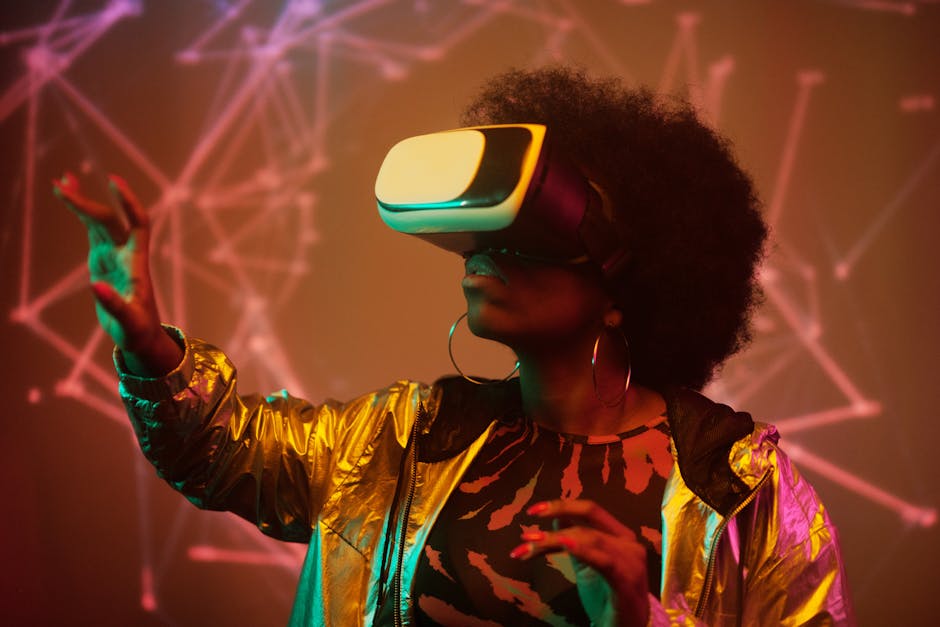The Future of Online Gaming Communities
Since the early days of dial-up internet, online gaming communities have been an intrinsic part of the gaming experience. These virtual spaces bring players together, fostering camaraderie, competition, and collaboration. As technology continues to advance at a rapid pace, the future of online gaming communities holds exciting possibilities and challenges. From virtual reality to blockchain technology, the landscape of online gaming is poised for significant evolution. In this article, we’ll delve into the intricacies of online gaming communities, exploring the trends, technologies, and transformations that are shaping the future of gaming.
The Rise of Social Gaming Platforms

One of the most significant trends in the gaming industry is the rise of social gaming platforms. Websites like Twitch, Discord, and Steam have revolutionized how gamers connect and interact with each other. These platforms offer a wide range of features, including live streaming, voice chat, and community forums, creating a vibrant ecosystem for gamers to engage with each other. With the increasing popularity of esports, social gaming platforms have become indispensable tools for players, teams, and fans to communicate and collaborate.
Virtual Reality and Immersive Experiences

Virtual reality (VR) technology has opened up new possibilities for online gaming communities. With VR headsets becoming more accessible and affordable, players can now immerse themselves in lifelike virtual worlds, interacting with other gamers in real time. VR gaming communities are redefining the way we experience games, blurring the lines between the physical and digital realms. From multiplayer VR games to virtual social spaces, the future of online gaming is set to be more immersive and interactive than ever before.
Blockchain and Decentralized Gaming Communities

Blockchain technology has the potential to revolutionize the way online gaming communities operate. By utilizing decentralized networks, blockchain-powered games can offer greater security, transparency, and ownership to players. In a blockchain-based gaming ecosystem, players have full control over their in-game assets, enabling true ownership and value exchange. Decentralized gaming communities are on the rise, offering a glimpse into a future where players can participate in virtual economies with real-world implications.
Data Analytics and Personalized Experiences

Data analytics plays a crucial role in shaping the future of online gaming communities. Game developers are leveraging data-driven insights to personalize the gaming experience, tailoring content, challenges, and rewards to individual players. By analyzing player behavior and preferences, gaming companies can create more engaging and immersive experiences that resonate with their audience. Data analytics also powers matchmaking algorithms, ensuring that players are paired with opponents of similar skill levels, enhancing the overall gaming experience.
Cross-Platform Gaming and Interoperability
Cross-platform gaming is becoming increasingly prevalent in the gaming industry, allowing players to connect and play with friends regardless of the device or platform they are using. This trend towards interoperability is breaking down barriers between different gaming communities, fostering inclusivity and collaboration. Cross-platform gaming also opens up new opportunities for developers to reach a wider audience, creating a more interconnected and diverse gaming ecosystem.
AI and Procedural Content Generation
Artificial intelligence (AI) is transforming the way games are created and played, leading to more dynamic and personalized experiences for players. AI-powered algorithms can generate procedural content, such as levels, quests, and challenges, on the fly, ensuring that games remain fresh and engaging. AI can also enhance non-player characters (NPCs) and enemy behavior, making in-game interactions more realistic and unpredictable. As AI continues to advance, the future of online gaming communities is likely to be shaped by intelligent algorithms that adapt and evolve based on player input.
Ethical Considerations and Community Guidelines
As online gaming communities continue to expand and evolve, ethical considerations and community guidelines are becoming increasingly important. Issues such as cyberbullying, harassment, and toxic behavior can have a detrimental impact on the gaming experience, leading to exclusion and alienation. Game developers and platform operators are taking proactive measures to create safe and inclusive environments for players, implementing moderation tools, reporting systems, and community guidelines to promote positive behavior and discourage misconduct. The future of online gaming communities will depend on the ability of stakeholders to uphold ethical standards and foster a welcoming and respectful atmosphere for all players.
Common Misconceptions
One common misconception about online gaming communities is that they are solely focused on competition and individual achievement. While competitiveness is indeed a significant aspect of gaming culture, online communities also provide a space for collaboration, creativity, and social interaction. Many gamers form lasting friendships, participate in charitable events, and engage in creative endeavors within their online communities, showcasing the diverse and multifaceted nature of gaming culture.
Comparative Analysis
When comparing the future of online gaming communities with traditional gaming communities, several key differences emerge. Online gaming communities have the advantage of global reach, enabling players from different countries and backgrounds to connect and collaborate in real time. Traditional gaming communities, on the other hand, are often limited by geographical constraints, requiring players to be physically present in the same location to interact. The future of online gaming communities holds the promise of greater diversity, inclusivity, and innovation, as technology continues to bridge the gap between players and communities around the world.
Conclusion
In conclusion, the future of online gaming communities is bright and full of exciting possibilities. From social gaming platforms to virtual reality experiences, blockchain technology to data analytics, the gaming landscape is undergoing a transformation that will reshape how we play, connect, and interact with each other. As AI, cross-platform gaming, and ethical considerations continue to shape the gaming industry, online communities are poised to become more diverse, inclusive, and dynamic than ever before. By embracing innovation, collaboration, and creativity, online gaming communities have the potential to redefine the way we experience games and build connections with fellow players around the world.
To wrap things up, the future of online gaming communities holds endless opportunities for growth, exploration, and discovery. As technology continues to evolve and shape the gaming landscape, players can look forward to a future where boundaries are blurred, connections are strengthened, and communities thrive in virtual worlds of endless possibilities.




